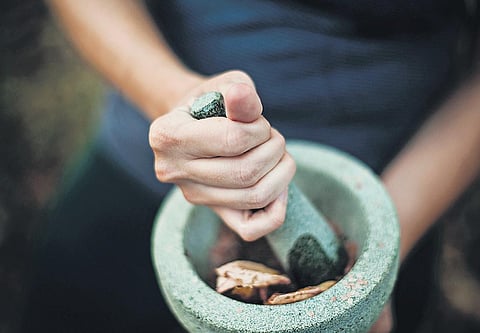

Do you give an option to a Covid- 19 patient to be treated by Allopathy, Ayurveda, Homeopathy, Sidha or Unani doctors? But it is a perfect strategy for the National Health Mission, which seems to have a cafeteria- like approach in giving choices to patients. Already, the Ayush Ministry has clarified that there is no antiviral drug it can offer, but only immuneboosters. Under modern medicine too, there are no antiviral drugs with proven impact yet.
The sheet anchor of treatment is preventing micro-clot formation and minimising the effect of immune reaction of the body to coronavirus called cytokine storm. Patients will have oxygen starvation and breathlessness in spite of supply of oxygen and use of ventilators. Salvaging from death is possible only by an efficient management of such serious complications. Imagine that role being entrusted to doctors who are not trained in modern medicine or gadgets.
All 94 doctors under the BBMP list, released on July 10, are non-allopathic, like ayurveda, unani, homoeopathy, yoga and naturopathy and dental graduates, except one MBBS doctor. The second day, there were 12 more MBBS doctors among the 200 selected. They are all paid a monthly salary of Rs 45,000 and will be posted at the BIEC Covid Care Centre. The reality is that except these 13 MBBS doctors, no one else is supposedly trained in giving an injection or a drip.
They are less skilled than a qualified nurse, leave alone managing ventilators and understanding ICU monitors. The blanket authorisation given by the BBMP to Ayush doctors to treat serious Covid cases should be condemned. Operation theatre technicians in Nepal are trained in anaesthesia skills. India also rolled out life-saving anaesthesia skills and emergency obstetrics care training to MBBS doctors to reduce maternal mortality.
These are skill upgradation of lower qualified staff to perform specific duties under supervision. But is it justified to get Ayush doctors to do clinical work and treat serious illnesses? A predecided treatment plan is entirely different from diagnosing complex medical conditions. Co-location and providing Ayush services is part of the NHM strategy. I am all for pluralism of therapies, but without crossing borders. Ayush doctors in many states under NHM funding are not practising what they are taught because of lack of drugs and other supplies.
In many states, Ayush doctors are deputed to mobile clinics and screening for congenital diseases, which they don’t know. Many Ayush doctors are on the payrolls of corporate hospitals, but they are mostly utilised in the night or off-duty hours. The unsuspecting public pay the same charges, which is exploitation. In many nursing homes, allopathic doctors submit affidavits saying they work there but don’t, and these facilities are totally run by Ayush doctors.
Someone needs to bell the cat. Health officials don’t give the approval to ‘single doctor nursing homes’ for want of additional doctors during off dutyhours, but ironically, the government runs institutions without qualified hands. Health can be a state subject, but not a state’s political decision. Why are IMA and Karnataka Association of Community Health silent? Do they approve of Ayush graduates managing serious Covid cases? Do Karnataka Technical Advisory Committee members support this move? They should convince the BBMP and state government to revise this decision.
What is the way out if MBBS doctors are reluctant to accept these posts? Raise the temporary emoluments to Rs 1 lakh and negotiate with doctors from private nursing homes that are closed. To offset the extra budget required, reduce the number of Ayush supportive doctors. If at all they are posted, they should be under the close supervision of MBBS doctors with a ratio of 1:3.
DR K R ANTONY
Former Health & Nutrition Specialist,UNICEF,India and Life Member of Indian Academy of Paediatrics, Indian Public Health Association, Public Health Resource Network